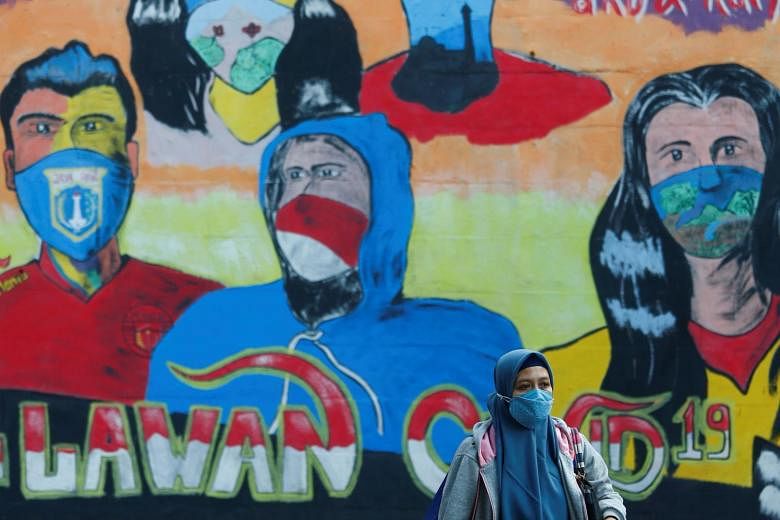JAKARTA (THE JAKARTA POST/ASIA NEWS NETWORK) - An upcoming long weekend is the next test for the country's Covid-19 mitigation efforts as mobility will be hard to control, warns an epidemiologist.
"Remember that the pandemic will persist for a relatively long period of time," an epidemiologist from Griffith University, Dr Dicky Budiman, said on Tuesday (Oct 20) as quoted by kompas.com.
People will enjoy a long weekend after the government declared Oct 28 and Oct 30 collective leave days. Sandwiched between those dates is Prophet Muhammad's Birthday on Oct 29, another public holiday.
Dr Dicky said the government needed to learn from previous long weekends that saw high mobility. Hence, he suggests the government encourage tourist site managers to strictly impose health protocols.
Separately, National Covid-19 task force spokesman Wiku Adisasmito encouraged people to make wise decisions.
"Think really carefully and take into consideration all the risks when deciding on whether it's worth leaving your home," Mr Wiku said in a written statement on Tuesday.
He reminded the public to adhere to the protocols of wearing a mask, washing your hands, social distancing and keeping away from large crowds.
Mr Wiku also encouraged offices to take anticipatory measures by taking note of employees who planned on going out of town, specifically to visit medium-risk or high-risk zones.
The spokesman said Idul Fitri break on May 22-25 and the long weekend to commemorate Independence Day in August had seen an increase in daily and weekly Covid-19 cases.
Over Idul Fitri, there was a 69 to 93 per cent increase in weekly cumulative cases in 10-14 days, while the Independence Day extended weekend saw an increase of 58 to 118 per cent within 10-14 days.
"It was caused by crowds in many locations visited by people and some of them flouted the health protocols," Mr Wiku said. Therefore, he encourages people to spend the upcoming long weekend at home as doing so would help flatten the Covid-19 curve.
"According to research by Zhou, et Al (2020), mobility reduction of 20 per cent within the city had a notable effect on controlling the spread of Covid-19: a flattening of the peak number of cases by 33 per cent and delay to the peak number by two weeks," Mr Wiku said.
Moreover, 40 per cent mobility restriction can reduce 66 per cent of cases and a four-week delay to the peak number of cases.
Mr Wiku added that another study by Hakan Yilmazkuday titled "Stay at Home Worth to Fight Against Covid-19: International Evidence from Google Mobility Data" suggests that lower mobility is associated with lower Covid-19 cases and deaths.
The study suggests that a 1 per cent increase in residential areas leads to 70 fewer Covid-19 cases and about seven fewer Covid-19 deaths weekly, whereas a 1 percent decrease in visits to transit stations led to 33 fewer Covid-19 cases and four fewer Covid-19 deaths weekly.
"A 1 per cent reduction in visits to retail and recreation areas results in about 25 fewer Covid-19 cases and about three fewer Covid-19 deaths weekly, while a 1 per cent reduction in visits to workplaces results in about 18 fewer Covid-19 cases and about two fewer Covid-19 deaths weekly. Imagine how many lives we could save by reducing our mobility," Mr Wiku said.











